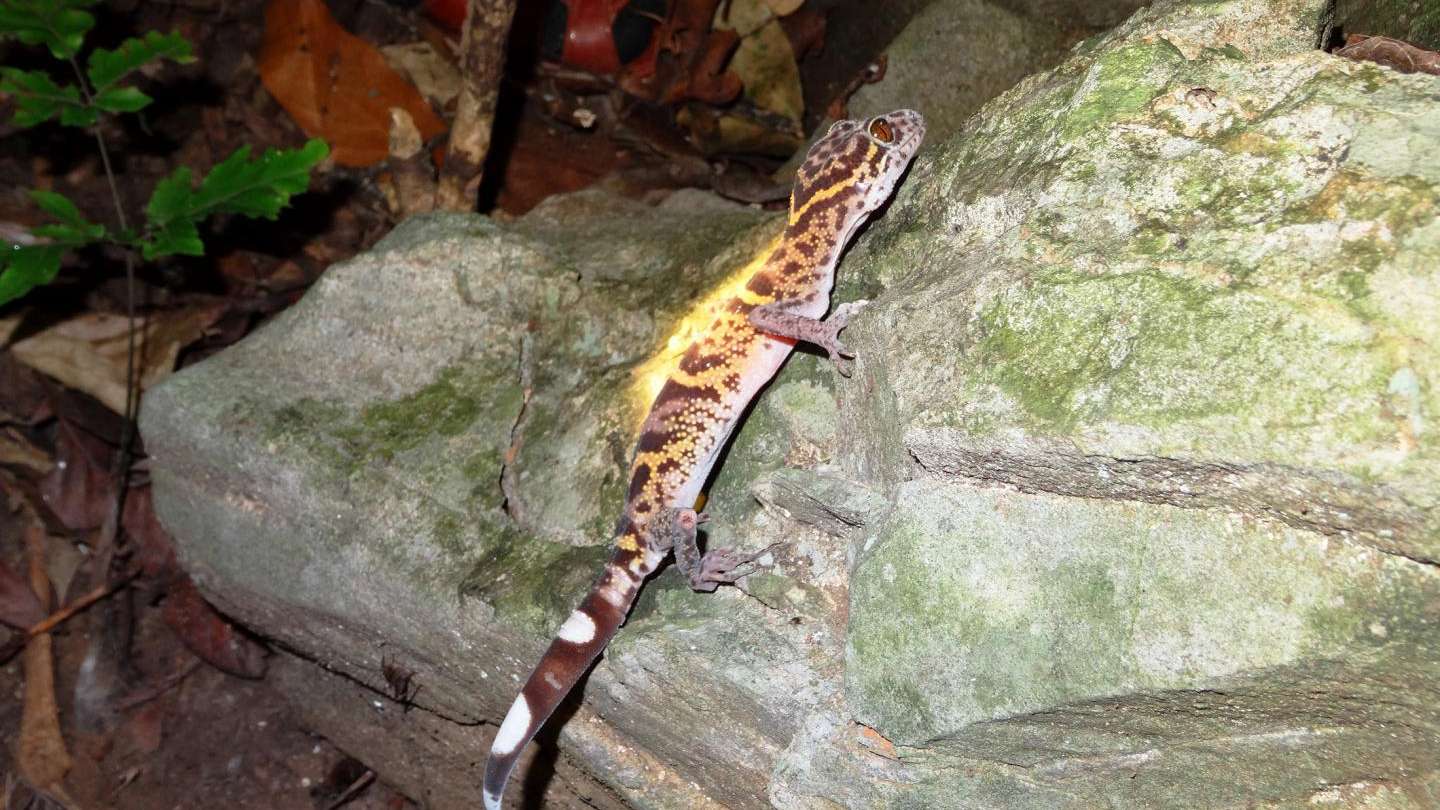
Animal
14:26, 02-Apr-2019
Global demand pushes Vietnam's tiger gecko towards extinction
Updated
14:55, 08-Apr-2019
Alok Gupta

Fueled by rising demand in the exotic pet market, and facilitated by the ease of selling on social media platforms, Vietnam's Cat Ba tiger geckos are facing a serious extinction threat, a study released on Monday claimed.
A majority of these rare geckos are caught in the wild and then sold at lucrative prices in the international pet market in Europe, the U.S. and Japan.
The U.S. alone imported 16,714 geckos from 1999 to 2018, according to data from the U.S. Fish and Wildlife Service.
Social media platforms like Facebook and Zalo are also boosting this trade, providing easy access to buyers, the study published in journal Nature Conservation found.
The surging demand and habitat loss have dangerously shrunk the tiger gecko's populations in Vietnam's Cat Ba Island and a few islands in the Ha Long Bay.
Today, only 120 geckos survive at Ha Long Bay. "Tiger geckos are neither sufficiently protected by law nor part of conservation programs, due to the lack of substantial knowledge on the species conservation status,” researchers said.
"There is a general lack of public and political interest in biodiversity conservation, pushing these geckos towards extinction," they added.
Tiger geckos are a genus of 19 species native to Vietnam, China and Japan. But the International Union for Conservation of Nature (IUCN) Red List, an inventory of the global conservation status of biological species, has assessed the conservation status of only eight species of tiger geckos.
The IUCN assessment places all eight species in the Vulnerable, Endangered and Critically Endangered category.
But none of the tiger gecko species have been listed by the Convention on International Trade in Endangered Species of Wild Fauna and Flora (CITES), a global wildlife regulator.
Concerned by the extinction threat, Vietnam has prepared a list of 13 species of gecko that require greater protection. The country is likely to present the list at the CITES conference of parties in Colombo in May.
During their survey, researchers tracked local traders in wild-caught tiger geckos representing all five Vietnamese species en route to foreign exotic pet markets.
The study found that the villagers sold the geckos to dealers for barely five U.S. dollars. Dealers would transport them by boat or train to Thailand or Indonesia from where the animal is then sent to the European and American market. A rare species of gecko can fetch 100 to 2,000 U.S. dollars.
"To date, exact impacts of trade on the species cannot be identified, as data of legal trade are only recorded for species listed in the CITES Appendices."
(Top Image: Cat Ba tiger gecko [Goniurosaurus catbaensis] in its natural habitat. /Mona van Schingen Photo)

SITEMAP
Copyright © 2018 CGTN. Beijing ICP prepared NO.16065310-3
Copyright © 2018 CGTN. Beijing ICP prepared NO.16065310-3